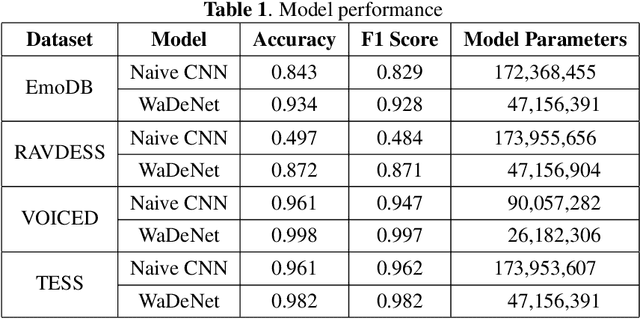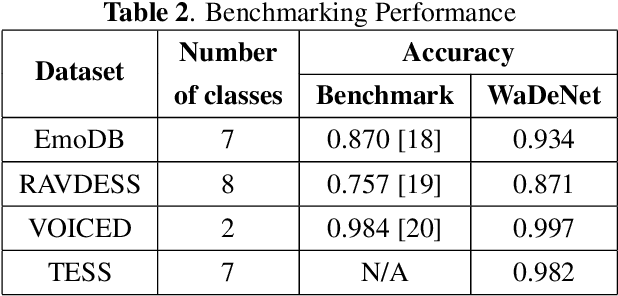Abhijith Ragav
Bayesian Active Learning for Wearable Stress and Affect Detection
Dec 04, 2020


Abstract:In the recent past, psychological stress has been increasingly observed in humans, and early detection is crucial to prevent health risks. Stress detection using on-device deep learning algorithms has been on the rise owing to advancements in pervasive computing. However, an important challenge that needs to be addressed is handling unlabeled data in real-time via suitable ground truthing techniques (like Active Learning), which should help establish affective states (labels) while also selecting only the most informative data points to query from an oracle. In this paper, we propose a framework with capabilities to represent model uncertainties through approximations in Bayesian Neural Networks using Monte-Carlo (MC) Dropout. This is combined with suitable acquisition functions for active learning. Empirical results on a popular stress and affect detection dataset experimented on a Raspberry Pi 2 indicate that our proposed framework achieves a considerable efficiency boost during inference, with a substantially low number of acquired pool points during active learning across various acquisition functions. Variation Ratios achieves an accuracy of 90.38% which is comparable to the maximum test accuracy achieved while training on about 40% lesser data.
WaDeNet: Wavelet Decomposition based CNN for Speech Processing
Nov 11, 2020


Abstract:Existing speech processing systems consist of different modules, individually optimized for a specific task such as acoustic modelling or feature extraction. In addition to not assuring optimality of the system, the disjoint nature of current speech processing systems make them unsuitable for ubiquitous health applications. We propose WaDeNet, an end-to-end model for mobile speech processing. In order to incorporate spectral features, WaDeNet embeds wavelet decomposition of the speech signal within the architecture. This allows WaDeNet to learn from spectral features in an end-to-end manner, thus alleviating the need for feature extraction and successive modules that are currently present in speech processing systems. WaDeNet outperforms the current state of the art in datasets that involve speech for mobile health applications such as non-invasive emotion recognition. WaDeNet achieves an average increase in accuracy of 6.36% when compared to the existing state of the art models. Additionally, WaDeNet is considerably lighter than a simple CNNs with a similar architecture.
 Add to Chrome
Add to Chrome Add to Firefox
Add to Firefox Add to Edge
Add to Edge